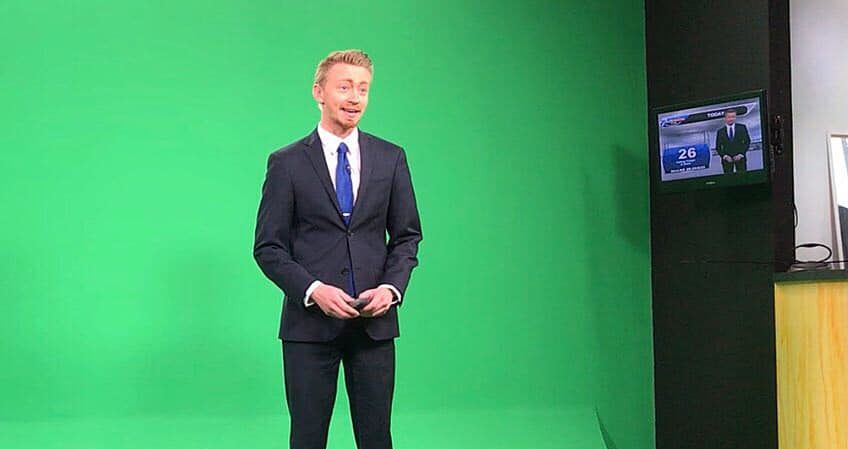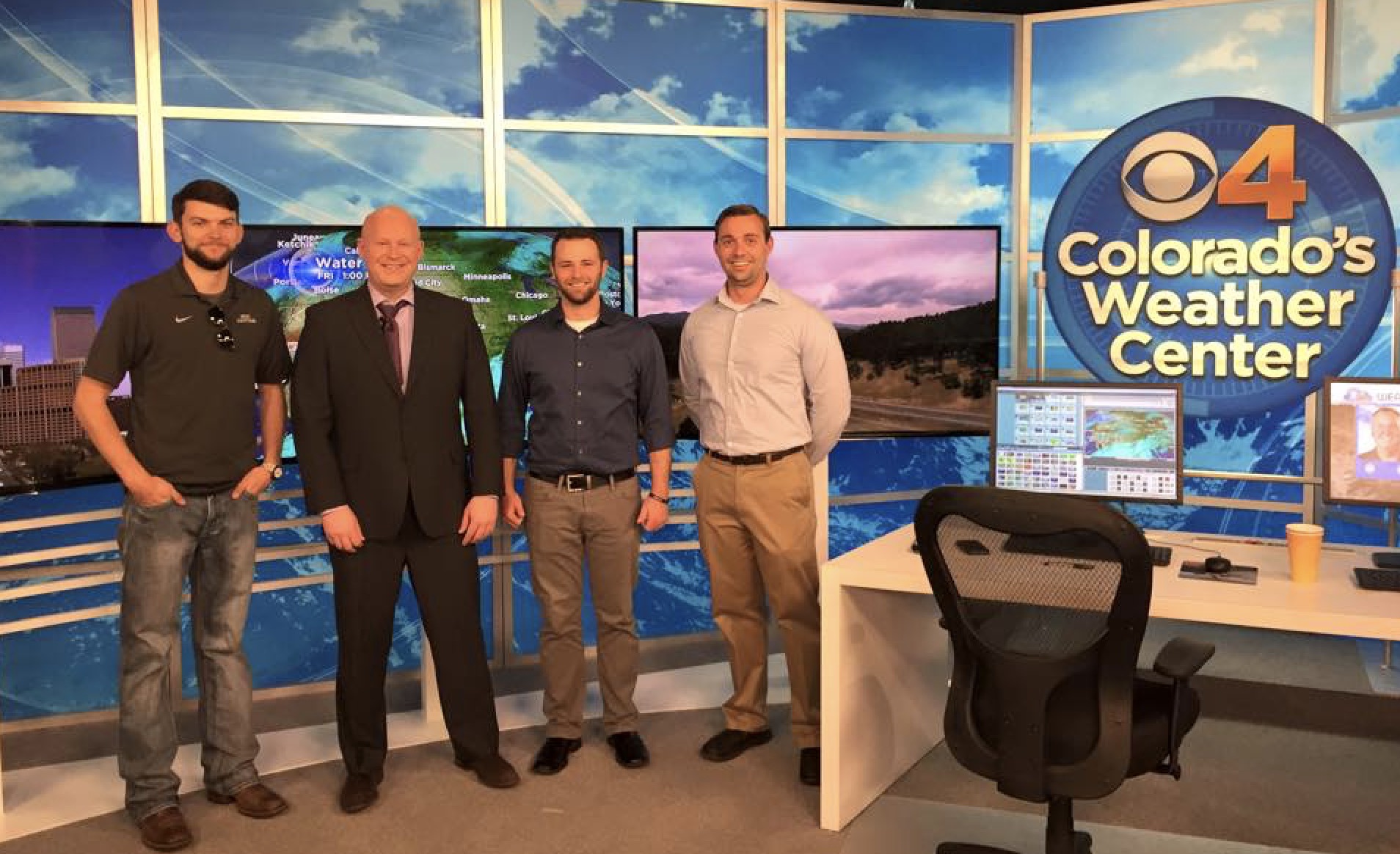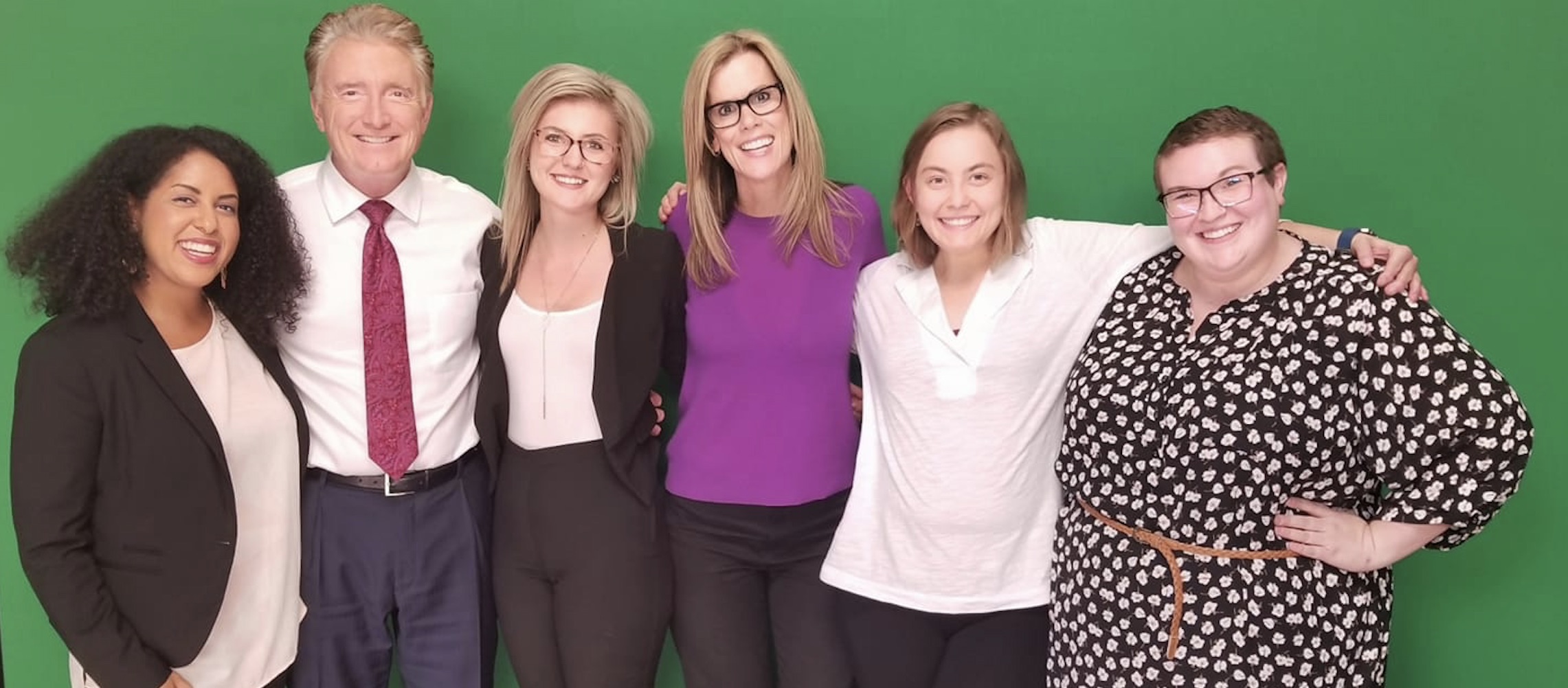Request Information
Ready to find out what MSU Denver can do for you? We’ve got you covered.
Graduates of the MSU Denver meteorology program are on television throughout the United States from Wisconsin to Kansas to Oregon to Texas to our very own Colorado. Check out the article above to read about some of our alumni.

Learn about some of our Broadcast Meteorology alumni in this MSU Denver RED article
In spring 2019, Professor, MSU Denver alumnus, and CBS4 Meteorologist Chris Spears offered MTR/JRN 290A: Broadcast Meteorology. The class met at the Auraria Media Center where the class had access to the green screen and the MAX computer system for creating weather imagery!
Students learned how to…


Students visiting Denver's Channel 7 meteorologist Mike Nelson
Students interested in broadcasting have the opportunity to learn how to produce professional television weather segments with industry standard technology. MSU Denver’s Emmy award winning student-run newscast, The Met Report, allows students to work with the WSI MAX program to look at forecast models, current radar, the new GOES-16 satellite data, and much more. Students will be prepared for a career in the field of broadcast meteorology with the combination of meteorology classes and practical experience gained at The Met Report. Alumni Josh Cozart and Brenden Mincheff were very active with the Met Report and are now successful broadcasters.
Courses students can take in the Journalism department to enhance their skill set in broadcasting include the following:
Please note these courses may change and the latest can be found in the current catalog.
Credits: 3
Description: This survey course introduces students from all academic disciplines to the historical development of journalism and mass media and its relationship to contemporary society. Students will explore the functions and impact of newspapers, books, television, radio, magazines, films, public relations and issues such as technology convergence, censorship, economic control, and privacy.
General Studies: Social and Behavioral Sciences
Credits: 3
Description: Through the lens of 21st century media, this course teaches students to be critical media producers and consumers through critical thinking and inquiry learning skills. It reviews the similarities and differences between traditional and 21st century media, with attention focused on bias, perspective, author’s intent, audience, social and ethical responsibilities, and the impact on a media communication process. 21st century media will be examined through both primary sources and current media to provide historical context for understanding media communication.
General Studies: Arts and Humanities
Credits: 3
Description: This course is an introduction to broadcast meteorology. Students will learn to prepare and present a professional weathercast with emphasis on communication skills, computer graphics, and on-camera delivery. Students will learn the Max Weather Computer system, a software system used widely in the industry.
Credits: 3
Prerequisite(s): JMP 2435 or permission of instructor
Description: This is an introductory course for “on air” performance, designed to meet the needs of radio-television-multimedia news anchors and announcers. Instruction is designed to develop pleasing and persuasive vocal and visual communication, either on-camera or on-mic, as a means of improving a variety of performance-driven broadcast, multimedia and Internet delivery presentations.
Credits: 3
Prerequisite(s): JMP 2400 or permission of instructor
Description: This course is an introduction to television production, operation of broadcast studio equipment, vocabulary, and experience in direction of multi-camera productions. Specific attention is focused on preproduction, including identification of audience by age, gender, and culture. Students will participate in production activities and procedures on a variety of projects.
Credits: 3
Prerequisite(s): JMP 2435
Description: This course introduces students to producing television news. This includes writing for TV news, in-studio production techniques, as well as post-production considerations in the creation of news packages. Business aspects of the broadcast news industry are explored, as well as legal and ethical issues that arise in news production.
Credits: 3
Prerequisite(s): JMP 3445 or permission of instructor
Description: This is an advanced course in digital production skills for both studio and the field projects. Specific focus is on digital, high-definition workflow and file-based capture and finishing. This course allows students independence and the opportunity for formative research, including team building, financing possibilities, target audience evaluation, and potential distribution venues.